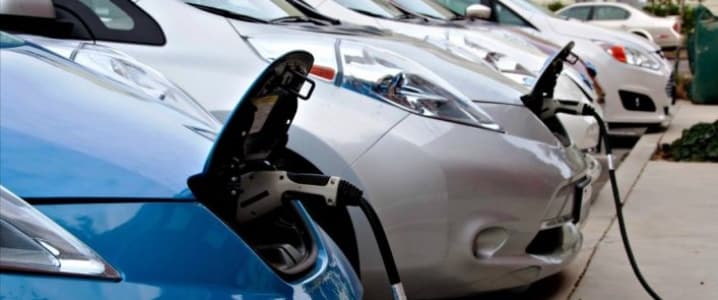A new study is showing consumers are starting to prefer shared mobility services over owning a car and stopping off at a gas station.
The study by University of Michigan Transportation Research Institute, Texas A&M Transportation Institute, and Columbia University, surveyed more than 1,200 people in Austin, Texas. They wanted to find out how their transportation habits changed after ride-hailing giants Uber and Lyft left the city.
Uber and Lyft had pulled out the Austin, Texas, market last year right after their ballot measure failed in a local election. Voters had blocked them from using their own background-check systems to bring in drivers, avoiding the strict guidelines governing the taxi and livery industry.
The university researchers found that 41 percent of the respondents went back to using their own vehicle to fill the void, and only nine percent went out and bought a car for their mobility needs. About 3 percent chose public transit, and 42 percent switched to another smaller local mobility startup serving the market.
There were 12 app-based startups trying to fill the void once Uber and Lyft left the market. Most are gone, but a few are still in business in Austin.
Researchers found that Austin survey respondents who had transitioned to a personal vehicle were 23-times more likely to take more trips than those who had switched to a startup ride-hailing firm. Trips went way down after Uber and Lyft left the city — the average frequency on trips went from 5.65 times per month to 2.01. That took a 68 percent drop.
Researchers in this, and other, studies are finding that ride-hailing, ride-sharing services like Uber and Lyft and their competitors around the world as seeing explosive growth. That’s the case in the car-sharing space as well, where companies like Zipcar, Car2Go, and Maven are adding more locations in cities around the world.
This has to do primarily with numerous studies showing that young people are moving into cities, getting their driver's licenses much later or not at all, and are using alternative transportation modes including bus and rail, ride-hailing, car sharing, and riding their bicycles.
Analysts are making predictions about revolutionary changes spreading across the world over the next 10-to-20 years in autonomous vehicles, shared rides, and rapid train systems such as Hyperloop. These studies predict that new vehicle sales will be dropping dramatically, along with gasoline consumption.
Related: Oil Rises, But Saudis Face Daunting Dilemma
“On-demand, ride-sourcing services have grown tremendously in the last decade and they promise a host of potential public benefits — reduced energy consumption and greenhouse gas emissions, easing of road congestion, as well as affordability, and accessibility,” said Robert Hampshire, a professor at UMTRI and lead author of the Austin study.
Demand for Uber and Lyft have been strong enough for the state of Texas to override Austin and other cities. In late May, Uber and Lyft relaunched their services in Austin, in response to the state adopting Texas House Bill 100. The new law overrides local ordinances, and creates statewide regulations governing transportation network companies.
Mobility companies are playing a leading role in the future of self-driving vehicles. Analysts predict that consumers will prefer having a self-driving car that they don’t own come pick them up for short trips - instead of having to make car payments, buy gasoline, and find and pay for expensive parking.
Automakers like Ford, General Motors, and Volkswagen, are getting into the game by starting up or acquiring mobility companies and tying it into testing self-driving cars.
General Motors plans to deploy thousands of self-driving Chevrolet Bolt electric cars in test fleets in partnership with Lyft, beginning in 2018. GM took an ownership stake in Lyft last year.
Related: The Next Big Catalyst In The U.S. Oil Export Boom
ADVERTISEMENT
GM’s fairly new car-sharing division, Maven, is seeing its business take off in the past year throughout North America.
The company recently started Maven Gig, a car-sharing service aimed at drivers working for Uber and Lyft, along with those driving for delivery services such as Postmates, GrubHub, and Instacart. Maven Gig started up in Los Angeles and is spreading to Boston, Phoenix, Washington, D.C., Baltimore, and Detroit.
The service is aimed at the “gig economy,” serving workers who don’t own a vehicle but need to make income driving for one or more of the popular mobility services in their market. They can rent a Chevy Bolt through Maven Gig for $229-a-week. The weekly fee includes insurance, maintenance, and electric vehicle charging.
By Jon LeSage for Oilprice.com
More Top Reads From Oilprice.com:
- Oil Futures Point To Higher Oil Prices
- Is This $25 Billion Nuclear Project A Go?
- Tesla Successfully Raises Funds As Cash Bleed Continues


















